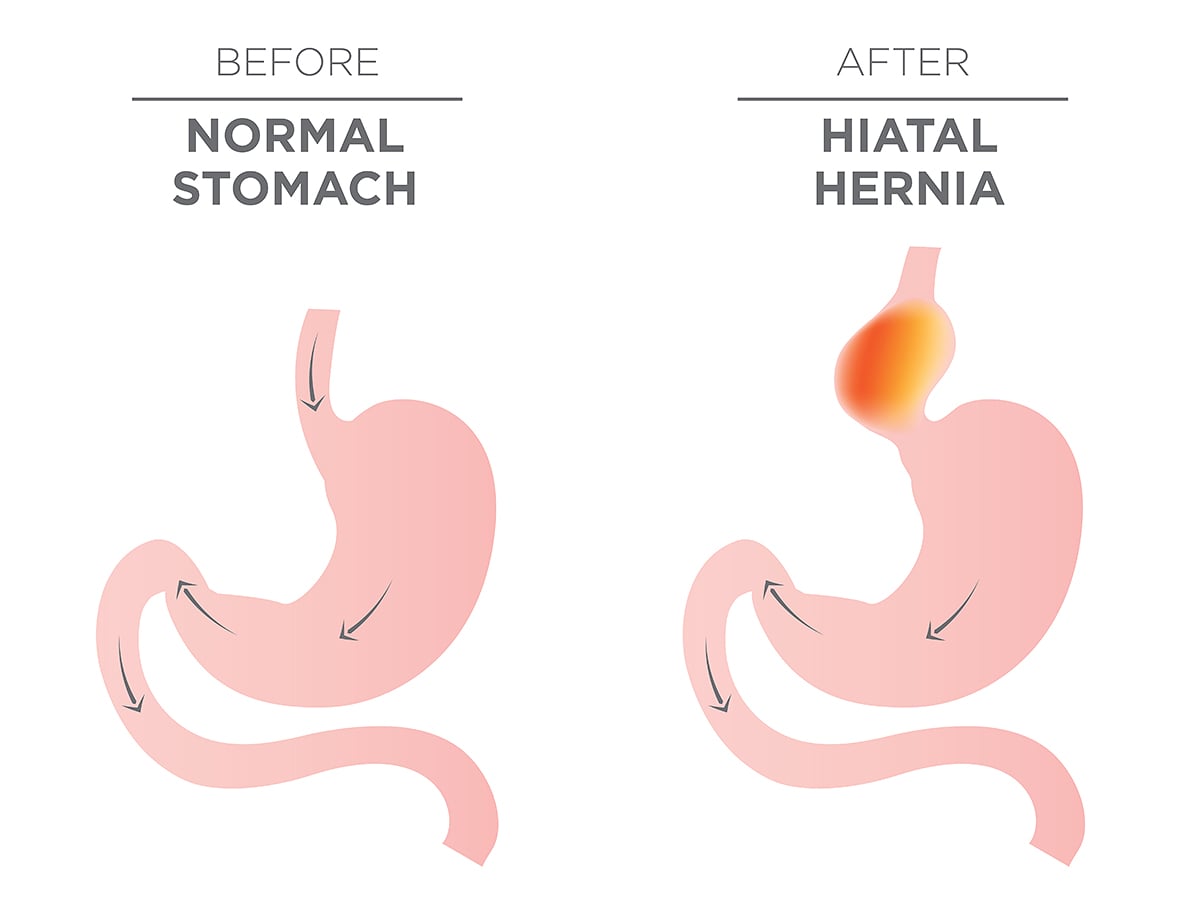Introduction
The oesophagus passes through a hole in the diaphragm from the chest to the abdomen. This hole is called The Oesophageal Hiatus. If this hole is large enough, a portion of the stomach will herniate from the abdomen to the chest. This condition is called Hiatus Hernia.
Indications
Many of the hiatus hernias are not symptomatic. However, this can cause heartburn (gastro-oesophageal reflux: GORD) as gastric acid backflows from the stomach into the oesophagus. Hiatal hernia repair is surgery to repair a bulging of stomach tissue through the muscle between the abdomen and chest (diaphragm) into the chest (hiatal hernia).
Hiatal hernia repair may be recommended when the patient has:
- Severe heartburn.
- Severe inflammation of the oesophagus from the backflow of gastric fluid (reflux).
- Oesophageal Narrowing.
- Compression on the lung or compression on the heart or repeated episodes of asthma from micro-aspirations of acids.
Preoperative Instructions
Medications
- Avoid anti-coagulants (blood thinners) as advised by your doctor.
Procedure
The operations include 4 steps:
- Reduction of the herniated stomach.
- Repair of the hole (the hiatus).
- Reinforcement with a mesh is sometimes indicated.
- Wrapping the upper stomach around the lower esophagus to reduce future reflux.
Postoperative Instructions
Patients may need to spend 3 to 10 days in the hospital after surgery. Gradual feeding will be tried according to the patient tolerance.
Risks
- General risks as for all surgery GA, Infection bleeding, Deep vein thrombosis.
- Specific risks recurrence of the hernia up to 15-20%.
- Difficulty swallowing for 6 weeks occasionally requiring further treatment with stretching of narrowed swallowing tube (oesophagus).
- Difficulty vomiting or belching with occasional increase in flatulence mostly temporary.
- Rarely injury to the internal organs.
Treatment Alternatives
While surgery is an effective treatment for a hiatal hernia that causes severe symptoms, people with mild symptoms may find relief using medications or home treatments.
Medication
- Antacids. These medications are available over the counter, by prescription, or to buy online.
- H2 receptor blockers. This medication is designed to limit the production of stomach acid. Medications may contain cimetidine, famotidine, and ranitidine. Stronger H2 receptor blockers are available by prescription.
- Proton pump inhibitors (PPIs). These drugs block acid production for longer than H2 receptor blockers, giving the tissue of the oesophagus more time to heal. PPIs may be bought at a pharmacy or may be prescribed by a doctor.
Home treatments
Some people can experience relief from reflux by making the following lifestyle changes:
- Losing weight if overweight.
- Eating five to six small meals daily rather than three large ones.
- Avoiding foods that cause acid reflux, including fried foods, acidic foods, alcohol, and caffeine.
- Eating the last meal of the day at least 3 hours before bedtime.
- Quitting smoking.
- Raising the head of the bed.





